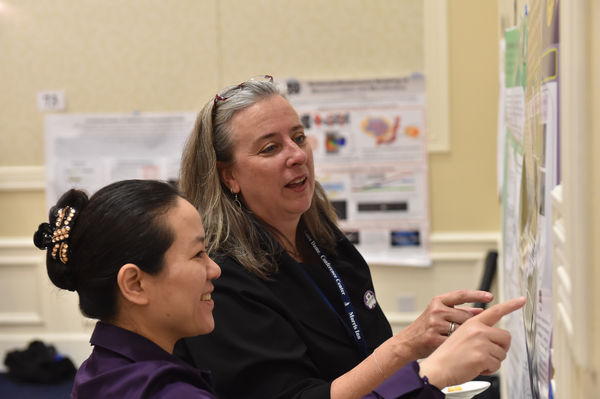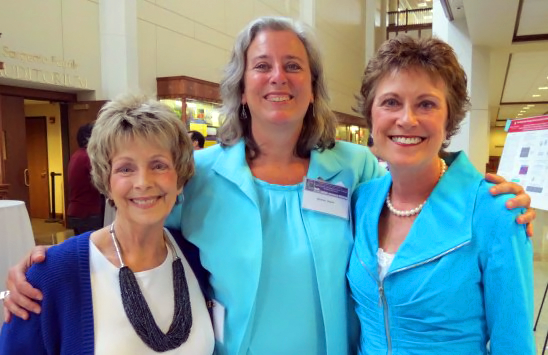With ovarian cancer ranking fifth in cancer deaths among women, there is an urgent need to increase research to improve early

detection, develop new treatments and therapies, and methods for more effective imaging. Currently, there is no reliable test to detect ovarian cancer in its earliest stages, so the majority of women with the disease are diagnosed after the tumor has already spread. Diagnosis in late stages of the disease dramatically reduces the effectiveness of current treatments and long-term survival. Dr. Sharon Stack, Director of the Harper Cancer Research Institute, and her lab are working to change these outcomes. Using primary and established human ovarian tumor cells and a variety of pre-clinical model systems, the Stack laboratory is investigating the role of changes in the expression and function of various enzymes and adhesion molecules in ovarian cancer metastasis. More recent studies have begun to evaluate the role of the “host” tissues to ovarian cancer metastatic success. For example, as the average age at which ovarian cancer is diagnosed is 63, research is addressing the hypothesis that ageing alters the ‘receptivity’ of tissues in the abdominal cavity to metastatic implantation by tumor cells. Additional studies evaluate the role that obesity plays in metastasis of ovarian cancer. Early results suggest that tumor cells adhere more aggressively to peritoneal tissues of mice fed on a high fat diet relative to control mice.

Dr. Stack doesn’t only make contributions in the laboratory; she also dedicates her time to promote the importance of funding for ovarian cancer research. Despite the prevalence of ovarian cancer in the United States, relatively little funding has been directed towards it compared to other cancers. In July 2013, Dr. Stack attended the Ovarian Cancer National Alliance conference where she joined 200 women and men on Capitol Hill to meet with US legislators and discuss the urgent need for research funding. Dr. Stack urged legislators to become co-sponsors of the Alliance’s movement to provide survivors the tools to teach medical, nursing, and physician assistant students about symptoms, risks, and treatments of ovarian cancer.
In addition to supporting ovarian cancer awareness, Dr. Stack initiates relationships with fellow ovarian cancer researchers. Every few

years, nearly 50 scientists gather at the University of Notre Dame for the Indiana-Illinois End Epithelial Ovarian Cancer Coalition (IIEEOCC) workshop, an effort to advance collaboration and research on this deadly disease. The workshop, hosted by the Harper Cancer Research Institute, attracts ovarian cancer researchers from nine universities around the Midwest. In poster sessions, presentations, and seminar discussions, researchers discuss topics ranging from new cancer-fighting drugs to the effects of obesity on ovarian cancer development. The relatively small number of ovarian cancer researchers in the United States makes the collaborative nature of this workshop extremely important. Instead of waiting months or years for research results to be published, researchers are able to directly interact, exchange up-to-date research results, share ideas and initiate collaborations. “We are becoming increasingly aware that a team-based approach is needed to conquer cancer. This is especially true for a disease such as ovarian cancer that is hard to detect and difficult to cure surgically. Working with other scientists and clinicians with unique and complementary skills will bring us closer to a cure.”